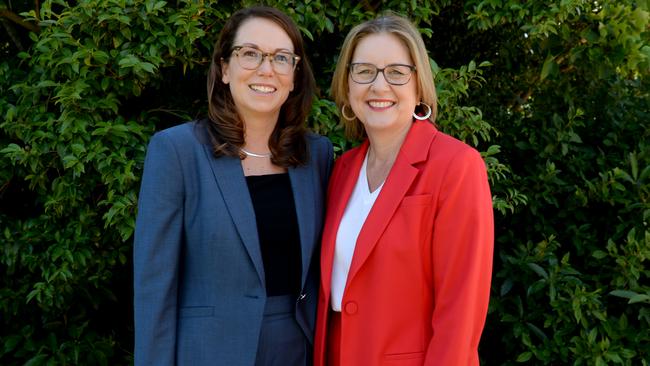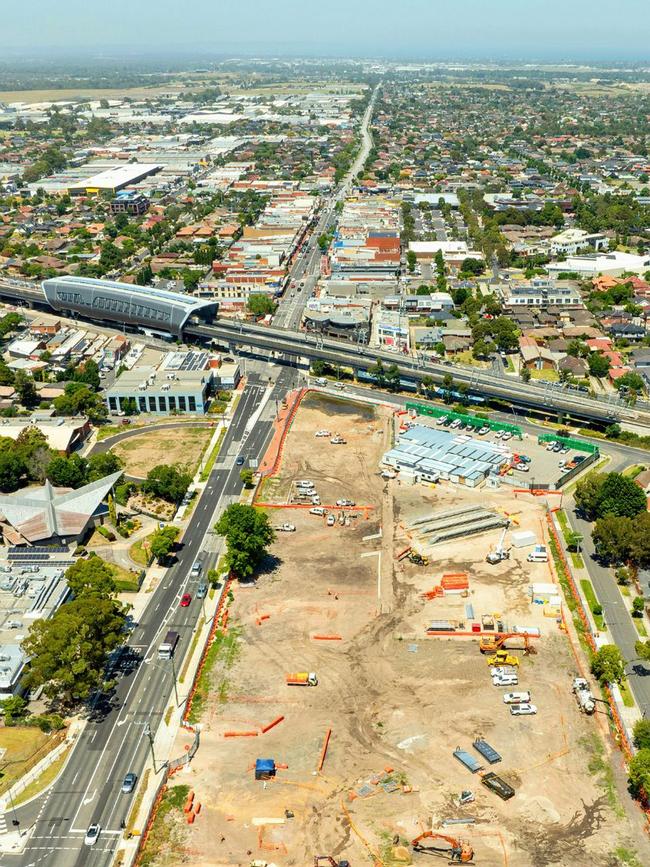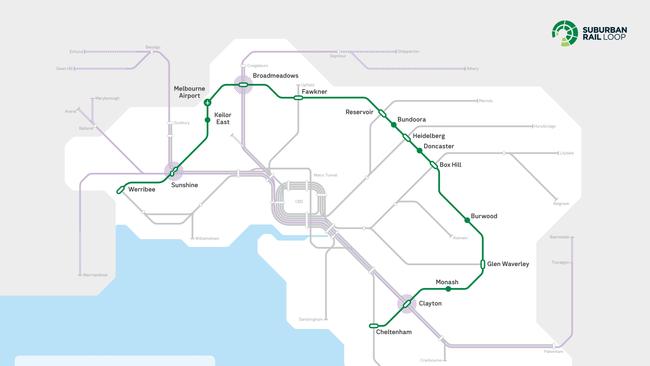‘Real risk’ of Suburban Rail Loop blowout: Jacinta Allan warned
Unfunded and unloved, Jacinta Allan’s Suburban Rail Loop could now be a budget breaker.

A global financial agency has warned there’s a “real risk” Premier Jacinta Allan’s signature but unfunded Suburban Rail Loop project will be hit with budget blowouts that could weaken Victoria’s credit rating and lead to a higher interest bill on the state’s spiralling debt.
As Treasurer Jaclyn Symes puts the finishing touches to her first budget, S&P Global issued its strongest commentary yet on the mega project, which is shrouded in deepening uncertainty around its funding.
While Ms Symes is expected to deliver a tough budget cutting expenses and potentially raising taxes next Tuesday, Labor has dug in behind the SRL, which will cost at least $34bn to build just the first stage linking Cheltenham to Box Hill.
“We believe there’s a real risk the suburban rail loop may cost more than the latest government forecasts, given the size and complexities of the undertaking and the state’s recent history of major projects going well over budget,” S&P Global analyst Rebecca Hrvatin told The Australian.
“Further, if Victoria pushes ahead with suburban rail loop without additional federal government funding, the state’s fiscal outlook may weaken, further eroding its credit standing.”

Ms Allan has defied pressure to axe the SRL since taking over as premier 18 months ago but faces mounting challenges around how her government will pay for it.
The Albanese government has pumped only $2bn into the project and the Victorian Auditor-General has questioned where the rest of the money will be coming from.
S&P Global downgraded Victoria’s credit rating by two notches in 2020 from triple-A to AA and has indicated a further downgrade could be on the cards unless the government gets the budget under control.
Victorian Opposition Leader Brad Battin said he held “grave concerns” about Tuesday’s budget. “We only found out recently of a $2.4bn cut in education, we’ve seen each and every year that the budgets from this state government are dishonest,” he said.
“We’ve had 10 dishonest state budgets here in Victoria.
“Our tax system is a mess, with 60 new taxes, increased taxes, because of the Allan Labor government and their failures to address the crisis they have when they waste so much money each and every year.
“This is a government that continues to hide everything in the budget because it’s about Labor first and the community second.”

S&P Global has been signalling to the market and the government that another credit downgrade may be looming, a move that would increase Victoria’s interest bill on its $157bn debt.
“We’ve been saying for some time that the stable outlook on our AA rating on Victoria is based on our expectation that infrastructure spending, which includes the early stages of the suburban rail loop, will be managed within budget and begin declining,” Ms Hrvatin said.
“This should ease the growth in its debt. We’ve also been saying for some time that our AA rating on Victoria will likely come under renewed downside pressure if major projects such as the suburban rail loop face cost escalations above their budgets or if the state can’t keep a lid on both debt and interest costs.
“In saying these things, we will not be able to make a decision on this until additional information is available, such as SRL costs relative to its budget or the federal government ruling out funding.”
In the lead-up to the budget, Ms Symes has been forced to defend the government’s land taxes that are hitting property investors and businesses.
Angie Romas, who has run his steelwork, sandblasting and painting business DH Corrosion & DPC Coatings for more than 20 years, has seen his land tax bill jump from $8000 to $203,000 over the past decade.
The Allan government will reap a predicted $9.3bn from land taxes – including its extra Covid debt levy on landholdings – in 2027-28, up from the $5.2bn it collected in 2022-23.
Labor has hiked land taxes as Victoria buckles under state debt which last year’s budget forecast to grow from $156.2bn this year to $187.8bn in June 2028.
“We want to ensure that we get the balance right in relation to the levies and taxes that people pay; we want to ensure that we have the revenue for the services that Victorians rely on to be delivered,” Ms Symes said on Thursday.
“We don’t want impacts on those that are suffering cost-of-living pressures, ordinary households and the like, that’s why we set our tax settings with consideration of those that have the greater capacity to pay.”



To join the conversation, please log in. Don't have an account? Register
Join the conversation, you are commenting as Logout